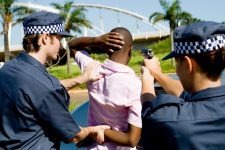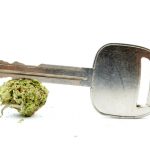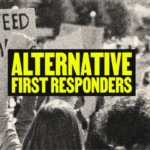Amnesty Calls for Independent Review of Alleged Police Brutality

Imagine this: five police officers burst through the door of your home one night. They grab your 16-year-old son, claiming he is being arrested for domestic violence.
Not only do they tackle the boy, they enter your 17-year-old daughter’s room and tackle her to the ground, then dragged her into the street, injuring her leg in the process. You try to tell police they have made a mistake; that your son is just 16 and has no criminal record, that they have the wrong person.
You approach police repeatedly, pleading “that’s my son” and trying and stop the whole caper. You are aggressively directed to “get back”, then pushed away several times before being forcefully shoved in the throat.
It has been reported that Natasha King, the mother in this scenario was right: that police did have the wrong person – and the wrong house. The officers were allegedly responding to an anonymous tip-off, but reportedly botched the job by going to the wrong address.
The entire King family ended up being handcuffed and shoved into police vehicles, except for the two-year-old son, who was left in the home alone during the ordeal.
Loanna King, the 17-year-old daughter, reported that she and her family were detained in the police vehicle for about 20 minutes. And to top it all off, they were charged with obstructing police and given court attendance notices requiring them to go to court.
Family’s Reaction
Loanna told the Daily Mail: “I feel very disgusted and disgraced that police do this kind of job – I’m very hurt and in so much pain. I just can’t believe that’s what the government is paying these cops to do.”
The family was shocked at the level of violence used against them by the police, with daughter Loanna still bearing scars on her leg from when police dragged her from her bedroom into the street.
Only part of the police interaction was caught on camera – later shared online by Danny Teece-Johnson, a journalist from National Indigenous Television.
Police Response
As previously reported, the Queensland Police Union congratulated the officer who shoved Natasha King in the throat, saying he “showed a lot of restraint.”
In fact, Union president Ian Leavers stated that “I would have arrested her well before they did.”
Police have made no comment about whether they indeed attended the wrong home, or about the allegation they dragged the 16-year-old girl into the street, injuring and scarring her leg.
Calls for Independent Review
The case raised concerns from Amnesty International, who called for an independent investigation into the incident. Police have responded by saying an internal police investigation will occur:
‘The Queensland Police Service has announced an internal investigation overseen by the government’s Ethics Standards Command and a review by a specialist operational skills and tactics instructor.’
But such partial investigations are notorious for vindicating police, even when evidence of impropriety later becomes clear through investigations by independent – albeit toothless – bodies like the NSW Ombudsman.
Amnesty has called for an entirely independent review, stating:
‘we need an independent investigation to hold police accountable. Independent means outside the Queensland Government and free from any government influence.’
Such an investigation could help clear up a number of questions, including: were police indeed at the wrong address? Were their actions legal? If not, what disciplinary action, if any, will be taken against the offending officers? And what can be done to prevent this type of conduct from occurring in the future?
Police Brutality in Australia
Unfortunately, police brutality is widespread and systemic in Australia – with stories like the King’s – and much worse – being regularly released on social media, and even reported by the mainstream media.
The spread of smartphones and growing popularity of social media has increased the likelihood of police misconduct being caught on camera and shown to the public; but this has not stopped it from continuing.
Filming Police
Despite what police may tell you, filming them in public – or on private property with the consent of the owner – is perfectly legal in both Queensland and NSW.
Yet in spite of the law, police have been known to illegally confiscate phones and delete incriminating footage. Some brazen officers have even had the audacity to lie in court after being confronted with damning footage of their brutality, thumbing their nose at the justice system in the process.
Regular reports of brutality against women – including an incident where police humiliated and stripped a woman with no justifiable reason – have led one commentator to state, “How can Australia say it is against domestic violence when the police behave like this?”
Indeed, many are wondering how police forces can publicly condemn violence against women when their officers behave so disgracefully.






